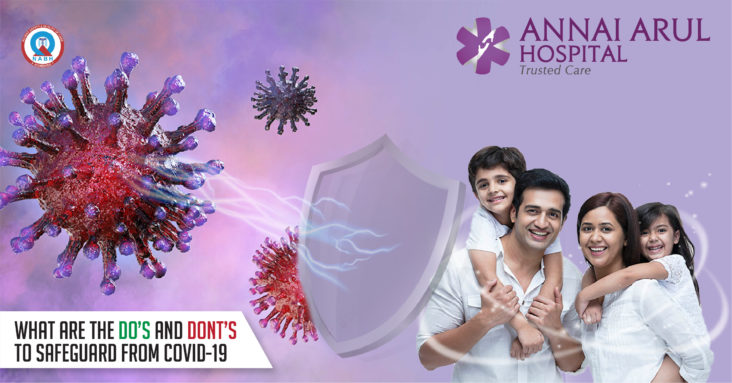Coronavirus is a family of viruses that has gripped the world for long. It includes right from the common cold virus to viruses that cause more severe diseases like Severe Acute Respiratory Syndrome (SARS) and Middle East Respiratory Syndrome (MERS).
What is Coronavirus?
Like most of the other viruses, Coronavirus or COVID-19 also brings on typical symptoms in humans, including fever, cough and breathing difficulties. The symptoms show a mild start and then progress to severe. It can result in inability to breathe, lack of oxygen and thereby collapse of various organs.
Up till now, no medicines have been found useful in treating Coronavirus disease and there are no vaccines available so far, though research is going on at full steam across the world. This means in severe cases; there is all probability of the disease leading to the death of the patient.
Spread of infection
COVID-19 spreads from person and person at a fast rate. The disease mainly spreads from an infected person through the droplets from the nose or mouth. When an infected person coughs or exhales. When the droplets come in contact with otherwise healthy people (EITHER DIRECT AEROSOL OR FOMITE TRANSMISSION) it comes in contact with their nose, eyes, or mouth and the infection spreads.
Where does COVID -19 survive?
The droplets can also fall and remain on various surfaces we contact in our daily life. It can survive from a few hours to as long as 2-3 days on these surfaces. It could be doorknobs, railings, seats in transport buses, seats and handrails in trains, clothing, packaging and the list is endless. The virus can survive on different materials like steel, plastic and cardboard with ease.
World Health Organisation (WHO) has confirmed that the virus that causes COVID – 19 is transmitted through contact with respiratory droplets.
Dos & Don’ts to Prevent Covid -19
Here are a few relevant dos and don’ts to safeguard oneself and prevent the spread of COVID-19 infection.
Dos:
• Wash your hands as often as you can. Take care to spend at least 20 seconds washing and thoroughly scrubbing your hands with soap and water.
• Wash hands after visiting the toilet, bathroom, before and after eating, after blowing your nose, coughing or sneezing, after returning from outside
• When you are out and about and you don’t have access to soap and water, use an alcohol-based hand sanitizer (with min. 60% alcohol)
• Cover your nose and mouth with disposable tissue or handkerchief when you sneeze or cough
• Throw used tissues in a covered bin
• See a doctor if you feel unwell or have (high fever, difficulty in breathing and cough)
• While visiting a doctor or hospital wear a mask/cloth to cover your nose and mouth
Don’ts:
• People without symptoms need not wear the face masks which are vital supplies for healthcare staff to take care of those seriously ill.
• Avoid travel if feeling sick or having any of the symptoms of COVID-19
• Do not organise or attend social gatherings, parties, political meetings. weddings and other events where people gather in large numbers
• Avoid contact with people who show signs and symptoms of the illness
• Avoid raw/undercooked food.
• Don’t touch your face, nose, eyes or mouth before washing your hands
• Stop smoking and use of other tobacco products
• Don’t spit in public places
• Avoid handshakes and touching surface in public places like railings, door handles and park benches


